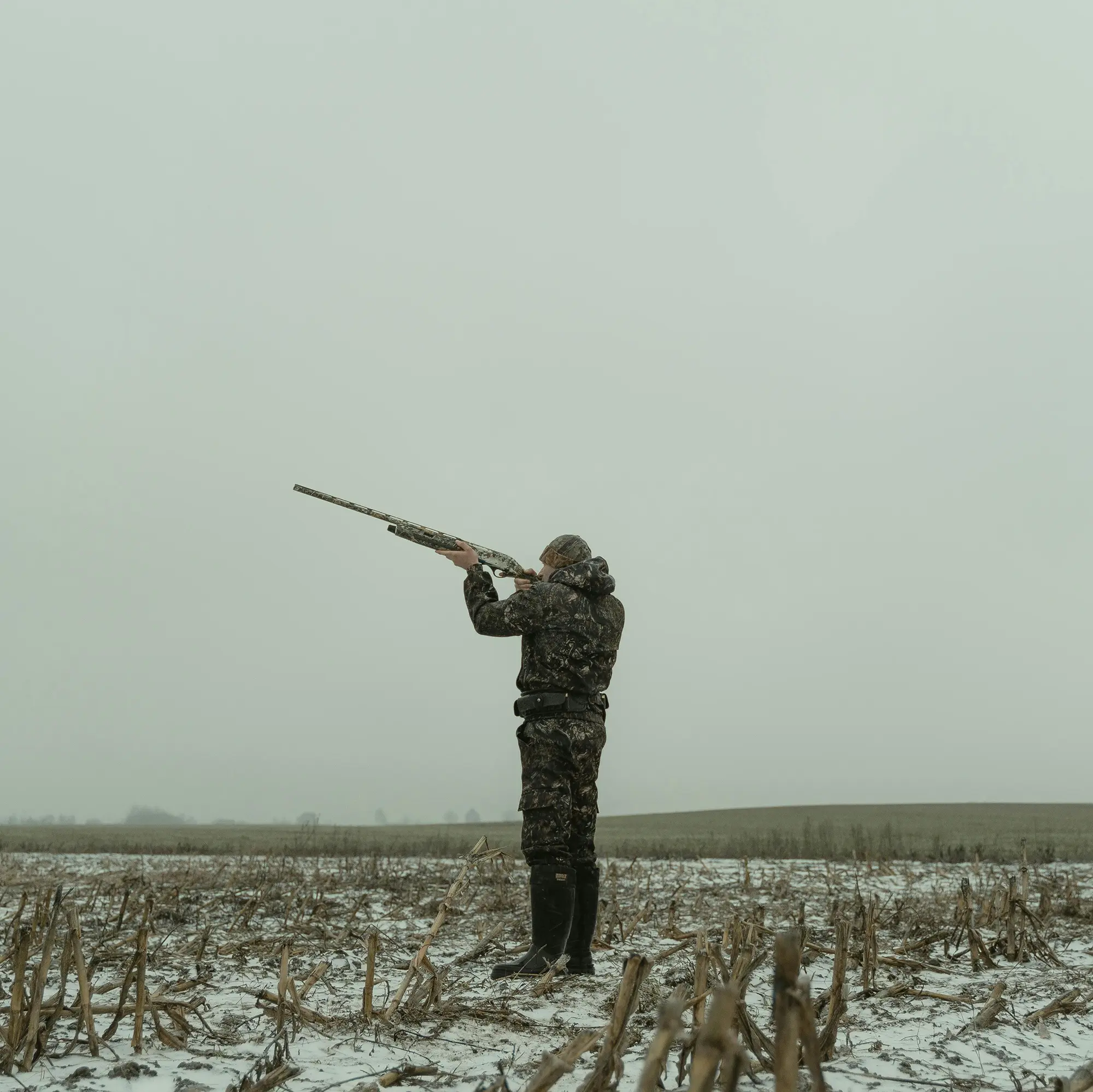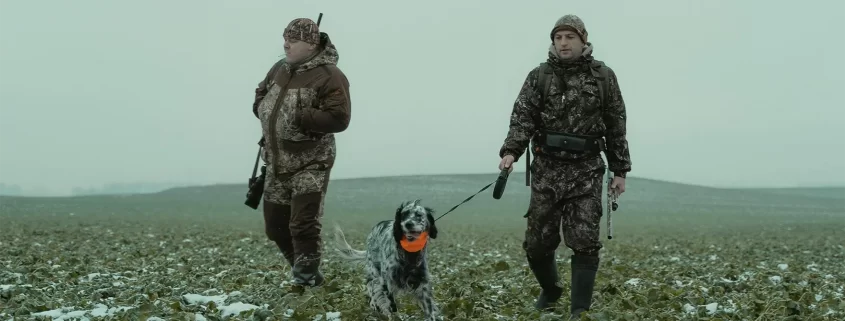Hunting Offenses in Pennsylvania
Here are the key takeaways from this article:
- Your hunting privileges can be revoked for any hunting offense. Game Wardens and Judges do not have to tell you in advance about the revocation.
- If you are charged with a summary 1, 2 or 3 offense you really should talk to an attorney.
- The PA Hunting and Trapping Digest is NOT an official statement of the law. It is a summary.
- To be convicted of baiting, you have to know or have reason to know the bait was there and the bait has to serve as an effective lure for the area where you were hunting.
- If you encounter a Game Warden, you are required to identify yourself and provide your license and tags. In a few cases you are required to give other information. Do not lie to them.
I. Do NOT Blindly Plead Guilty to Hunting Offenses
In Pennsylvania there are about two dozen possible charges that a hunter could receive under the Game Code. There are about five that we see very commonly.
All Game Code offenses are given a grading and a range of penalties. The vast majority of Game Code offenses are summary offenses. Summary offenses are the least serious type of offense in Pennsylvania and are almost always punishable by a fine. There are a couple Game Code Offenses that could be misdemeanors, but those are the most serious and beyond the scope of this article.
The Game Code divides summary offenses into eight categories with summary 1 being the most serious and summary 8 being the least serious. Here are the range of fines:
- Summary offense of the first degree: Not less than $1,000 nor more than $1,500 and may be sentenced to imprisonment up to three months.
- Summary offense of the second degree: Not less than $400 nor more than $800 and may be sentenced to imprisonment up to one month.
- Summary offense of the third degree: Not less than $250 nor more than $500.
- Summary offense of the fourth degree: Not less than $150 nor more than $300.
- Summary offense of the fifth degree: Not less than $100 nor more than $200.
- Summary offense of the sixth degree: $75.
- Summary offense of the seventh degree: $50.
- Summary offense of the eighth degree: $25.
See 34 Pa. C.S.A. 925. Please note that while jail time is possible for some summary offenses, it is virtually never imposed.
Please also be aware that the Game Commission is entitled to seek replacement costs for an unlawfully taken animal. Those replacement costs are determined in advance and published in regulations. 58 Pa. Code 131.8.
Under Pennsylvania law, the Game Commission can revoke your hunting privileges for any violation of hunting requirements even if you are not convicted. 34 Pa. C.S.A. 929(a) and 2741. Typically a first offense can only result in a revocation of up to 3 years, although there are exceptions. 34 Pa. C.S.A. 2742(a).
 Neither a Game Warden nor a Magisterial District Judge is required to tell you about the possible revocation. Revocations ARE NOT imposed by the Magisterial District Judge. Revocations are a separate administrative proceeding imposed by the Game Commission directors out of Harrisburg. A Game Warden CANNOT make a binding promise as to what will happen in terms of revocation. A Game Warden does get to make a recommendation to the directors in Harrisburg. The directors often follow a Game Warden’s recommendation. We have had several clients who felt that they were misled or deceived about revocations by statements from Game Wardens. A misstatement by a Game Warden is not a defense to revocation. Before you plead guilty be sure to know what you are likely facing in terms of revocation.
Neither a Game Warden nor a Magisterial District Judge is required to tell you about the possible revocation. Revocations ARE NOT imposed by the Magisterial District Judge. Revocations are a separate administrative proceeding imposed by the Game Commission directors out of Harrisburg. A Game Warden CANNOT make a binding promise as to what will happen in terms of revocation. A Game Warden does get to make a recommendation to the directors in Harrisburg. The directors often follow a Game Warden’s recommendation. We have had several clients who felt that they were misled or deceived about revocations by statements from Game Wardens. A misstatement by a Game Warden is not a defense to revocation. Before you plead guilty be sure to know what you are likely facing in terms of revocation.
Revocations of hunting privileges are always for whole year periods and they always run from July 1 to June 30.
The Game Commission has an unpublished standard operating procedure that gives recommended lengths for revocation. The procedure is fairly well understood by those that deal with the Game Commission and the Game Commission does consistently follow that procedure.
Here are the standard revocation recommendations from the Game Commission:
- Conviction of a Summary One: 3 year revocation
- Conviction of a Summary Two: 2 year revocation
- Conviction of a summary Three: 1 year revocation
- Baiting activity where no animal was taken: Written warning
- Mistake Kill where kill was properly reported and all other steps followed: No revocation
If you are only convicted of summary four or less serious offenses, it is unlikely that the Game Commission will seek a revocation. If you are not convicted (not charged or found not guilty), it is unlikely that the Game Commission will seek a revocation.
If you are charged with a summary 1, 2 or 3, and you value your hunting privileges, you should consult an attorney BEFORE you plead guilty.
II. The Hunting and Trapping Digest is Good, but Not Necessarily an Accurate Statement of law. There’s More to Baiting than the Digest Says
The Pennsylvania Hunting and Trapping Digest is an official publication of the Pennsylvania Game Commission, but it is not an official statement of the law. The Digest is a valuable publication. However, hunters need to realize that the Digest is prepared by employees of the Game Commission. The Digest DOES NOT print the actual statutes or regulations relating to hunting. It prints the Game Commission’s interpretation of the statutes. In Pennsylvania, the Pennsylvania General Assembly writes the laws and the Courts make official interpretations of the laws. The Game Commission can make specific regulations to flesh out certain aspects of the laws.
If there is a legal question, the law as stated by the General Assembly or the law as interpreted by the Courts wins out.
For example, here’s what the 2021-22 Digest says about baiting:
Baiting is allowed conditionally on private property in the Southeast Special Regulations Area. See detailed information on the Special Regulations Areas page within this digest. Elsewhere in the state, it is unlawful to hunt in or around any area where artificial or natural bait, food, hay, grain, fruit, nuts, salt, chemicals or minerals, including their residues – regardless the type or quantity – are used, or have been used within the past 30 days, as an enticement to lure game or wildlife. Hunters are responsible for ensuring an area has not been baited before they begin hunting. They should physically inspect the area and question landowners, guides and caretakers. This section does not pertain to hunting near areas where accepted farming or habitat-management practices are taking place (example: hunting near food plots on game lands is legal). The manipulation of crops for dove hunting is permitted. Any natural or manmade nonliving bait can be used to attract coyotes for hunting or trapping.
This is not quite the law. First, Pennsylvania uses a reasonable hunter standard. Com. v. Sellinger, 763 A.2d 525 (Pa. Commw. Ct. 2000). This standard means that a hunter should be aware of the area that they are hunting and whether there is bait present. Checking with landowners, guides and caretakers is a good idea, but is not actually required under the law. As a hunter, if you did not know bait was present, or did not have a reason to know bait was present, you are NOT GUILTY.
Additionally, the courts have accepted the following standard:
The extent of a ‘baited area’ is defined only by the capacity of bait placed anywhere within it to act as an effective lure for the particular hunter charged.
Com. v. Sellinger, 763 A.2d 525, 527 (Pa. Commw. Ct. 2000). A hunter is only “hunting over bait” if the hunter is hunting where the bait can be an “effective lure.” There is no set distance under Pennsylvania law.
 We have seen many cases in which a hunter believes that they are far enough from bait to lawfully hunt, but the Game Commission disagrees and charges the hunter. The Game Commission is not the final arbiter as to this issue—a judge is. For the hunter to be found guilty, the Game Commission would have to prove beyond a reasonable doubt that the bait was an effective lure in the area being hunted. That’s a difficult case for the Game Commission to make when the hunter is 100 or more yards away from the bait.
We have seen many cases in which a hunter believes that they are far enough from bait to lawfully hunt, but the Game Commission disagrees and charges the hunter. The Game Commission is not the final arbiter as to this issue—a judge is. For the hunter to be found guilty, the Game Commission would have to prove beyond a reasonable doubt that the bait was an effective lure in the area being hunted. That’s a difficult case for the Game Commission to make when the hunter is 100 or more yards away from the bait.
It should also be pointed out that the Commonwealth Court does expect the Game Commission to mark off baited areas. See 34 Pa. C.S.A. 2308(a)(8) and Commonwealth v. Redovan, 227 A.3d 453, 458 (Pa. Commw. Ct. 2020). In Redovan, the Court found that the Game Commission’s failure to mark a reasonable area around known bait was one of the reasons the charges should have been dismissed.
Unfortunately we have seen a number of cases in which a Game Warden discovers bait and, rather than mark off the area or alert the property owner, they conduct a “sting” operation and surveil that area to see who is hunting. This is questionable activity by the Game Commission and is clearly disfavored by the Commonwealth Court. There may be other court cases that will define the scope of the Game Warden’s obligations when they discover bait.
III. Interacting with the Game Commission
Hunting licenses and tags must be carried with you when hunting. 34 Pa. C.S.A. 2711(a)(1) 58 Pa. Code § 143.2. Hunters are required to produce identification to Game Wardens. 34 Pa. C.S.A. 904(b). Hunters are not required to have any other interaction other than identifying themselves, making reports of taken big game or reporting a mistake kill. 34 Pa.C.S.A. § 2323 and 58 Pa. Code § 141.41 and 34 Pa.C.S.A. § 2306(c)(3). You are not required to give a Game Warden a statement about anything else.
All PA Game Wardens (but not deputies) have now been issued body cameras. We’ve had too many cases in which the body cameras are not used or not working. We’ve also had too many cases where a Game Warden does not take notes. The lack of recording and notes often leads to substantive disputes later about what was said. If you choose to give a statement to a Game Warden, insist that they record it on their body camera. If their camera is not working, offer to provide a written statement. If you have a body camera, it is lawful to record your interactions with the Game Commission. I do recommend that you tell them they are being recorded. DO NOT give an unrecorded statement to the Game Commission.
Providing a false statement to a Game Warden is a violation. 34 Pa.C.S.A. § 906. If you are in a legally questionable situation it may be best not to make a statement to a Game Warden. You are free to tell a Game Warden that you want to interact with them through an attorney. A Game Warden should respect that.
If you are charged with a summary 1, 2, or 3 Game Code offense, review the situation with an attorney prior to entering a plea. Accepting a summary 1, 2 or 3 conviction will likely lead to a revocation of your hunting privileges. Contact Cornerstone Law Firm to review your situation before entering a plea.



